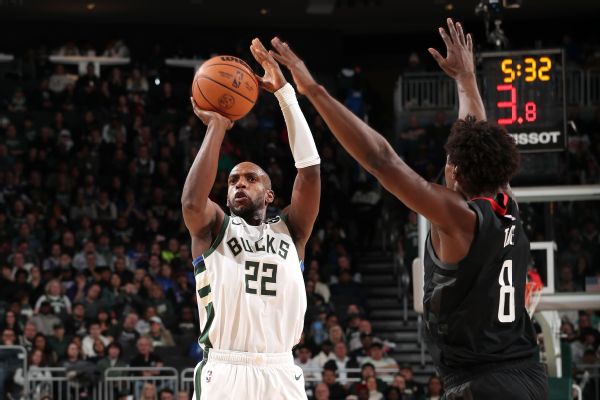Twenty-one and a half years ago, one of the greatest baseball games ended one of the greatest World Series ever played. There was, in the cacophony of the moment, so much to process with virtually no time to do so. The 2001 New York Yankees had lost the World Series in the bottom of the ninth inning, missing the chance to win a fourth straight World Series and conclude a dynasty with a championship. The Arizona Diamondbacks, in only their fourth year of existence, had done something the Boston Red Sox hadn’t done since 1918, the White Sox since 1917 and the Cubs since 1908. They were champions, and needed just 48 months to do it.
How to encapsulate it all? The valiant Yankees, who probably deserved to be swept, mercilessly or gentlemanly, extended the series to seven games hitting .183 by producing magic, and then producing it again with soul-sucking (or dynasty-affirming, if you’re from the 917, 212 or 718 area codes), late-game home runs in Games 4 and 5. Curt Schilling or Randy Johnson, when starters still mattered, won all four games for Arizona. Yankees reliever Mariano Rivera proved human in Game 7. And then there was America, wounded, mourning, vulnerable, briefly unsure if it wanted a hug or revenge (it would emphatically choose the latter) in the numbing, ashen haze of 9/11. The athletes had given so much that the actual winner of that Series remains to this day secondary to the gift of its existence.
In the clubhouse postgame, the defeated Yankees captain Derek Jeter encapsulated it all his way, by repeating the mantra he first used in 1997, and would repeat in each of the following years until 2009 — and for five more years when he retired. “If we don’t win the World Series,” Jeter said, “the season’s a failure.”
Two decades later, Jeter’s alpha found itself challenged in the form of Milwaukee Bucks superstar Giannis Antetokounmpo, who responded to a reporter’s question of whether he felt the Bucks’ season was a failure after top-seeded Milwaukee crashed out of the playoffs in the first round in a five-game stunner to the Miami Heat, an eight-seed that had to win two play-in games just to qualify for the postseason.
“Michael Jordan played 15 years, won six championships. The other nine years was a failure? That’s what you’re telling me? I’m asking you a question, yes or no?” Antetokounmpo said. “… It’s the wrong question. There’s no failure in sports. There’re good days, bad days. Some days you are able to be successful, some days you are not. Some days it is your turn, some days it’s not your turn. And that’s what sports is about. You don’t always win.”
As much as the last decade has been defined by protests and pandemics, it also has seen a shift in the perception of the athlete’s mission, from complete victory to philosophy. In taking control of the profession by countering prevailing attitudes — many self-introduced — the professional athlete can be General Patton or the Dalai Lama. The considerations of mental health, work-life balance, political world view and labor relations have provided ample grist for the culture wars that undergird the anger over players having the agency (read: financial freedom) to reshape their working conditions. The response to Antetokounmpo has been to view his philosophy as strength, where that sort of response once was viewed by some as weakness. Male players once ridiculed and culturally ostracized by fans, teammates and their own front offices for even thinking about family during the season, now take paternity leaves — even during the playoffs, as Boston Celtics guard Derrick White did last year during the Eastern Conference finals. From Serena Williams to Naomi Osaka to Angelique Kerber, female athletes are having children without announcing their retirements. Some players in individual sports are taking time away from the sport and then returning at their pace. Simone Biles lost her way athletically, and a generally compassionate sports public has given her all the time she needs to rediscover it.
Sports has always existed in the world of the “winner/loser, hero/goat, do/die” binary. The absolutism has been just as essential to the framework of creating the athlete colossus as militaristic cliches are to raising the stakes of this battle fantasy. It stokes the mythology, gives it the requisite dramatic components, allows us to separate the poor from the exceptional and the exceptional from the legendary. The players who embrace the binary ally themselves with fans in the suggestion that they care as much about winning as the ticket buyers. It buys them the currency of protection.
There’s no tomorrow because sports have mastered the illusion of appearing deathly important — and yet, of course there is always a tomorrow — and people like Giannis are dousing that part of the fantasy. The Jeter position always felt like an unrealistic pander to the ridiculousness that is the overwrought and unrealistic expectation by Yankees fans, for only one team wins the final game of the season. The wonders and discoveries of a season cannot be negated by not winning a championship. By these metrics, the team that doubles its win total from the season before is a failure, as is the team that makes the playoffs for the first time in 25 years, as is the team that started the season losing its first 10 games but finished 10 games over .500, as is the team that discovered it had a future Hall of Famer on its roster. Thirty teams, 29 failures.
And yet, Giannis is only partially correct. Under no circumstances is he ever a failure in life, comparing his Greek-Nigerian upbringing and the prospects for him as a child against the life he now lives. There is not a day in his life, from now until the end, when he is not a winner.
All of which is a different dynamic from the obvious: The Boston Bruins won more games in a regular season (65) than any team in the storied history of the National Hockey League. They had an unprecedented season in their home building, losing only seven times, four in regulation. They amassed more points than any team in history, and like the Bucks, lost in the first round of the postseason. The Bruins were the No. 1 overall seed heading into the Stanley Cup playoffs. They lost three games at home to the Florida Panthers. They lost a 3-1 lead in games. In a Game 5 home elimination game, the Bruins never led. In a Game 6 elimination game, they lost two third-period leads and eventually the game. In the Game 7 clincher at home, the Bruins led with 60 seconds left in the game — and lost in overtime.
Was the Bruins’ regular season a failure? Of course not, but nor was it a coin toss where sometimes you win, sometimes you lose, sometimes it rains. The way the hockey season ended in Boston was a colossal disappointment.
Milwaukee was the top seed, won 16 straight games at one point this season and had plans to avenge last season, when it felt injuries robbed it of the chance to defend its NBA title. The Bucks lost in five games to the Miami Heat, including consecutive games with double-digit fourth-quarter leads. There’s no philosophy in this: It was a collapse, and for it, Milwaukee coach Mike Budenholzer got fired.
If the fear is that Antetokounmpo’s ability to put his life in the proper perspective will undermine the gladiatorial fantasy and its accompanying clichés of warriors, intestinal fortitudes, clutch genes and all the other rhetorical nonsense sports relies upon so desperately, then it is a fear that will be largely unfounded for two primary reasons. First, for every Giannis, there remains a Jeter — and an enormous, enraged subsection of the fanbase that is never in the mood after crashing out of the playoffs for metaphysical analysis. Second, although Giannis might have been measured in how he spoke of his season ending, he emerged with even more respect because, for all of his mature perspectives, there was nothing in his play charging him with an athlete’s greatest crime: playing as if he doesn’t care. He simply recognized publicly and without cliché, that losing is an inevitability that cannot and should not reduce a six-month journey into meaninglessness, even if — as seen in Milwaukee and Boston — there was so far to fall.
There is also a third reason, and it goes back to that November night in 2001: The final score is rarely the most comprehensive measure of victory. Ask anyone who lived through those weeks and months when something as ephemeral as hitting a ball with a stick contained the restorative power to motivate some people to get up in the morning. Failure because the Yankees lost a game was the last thing on anyone’s mind.



